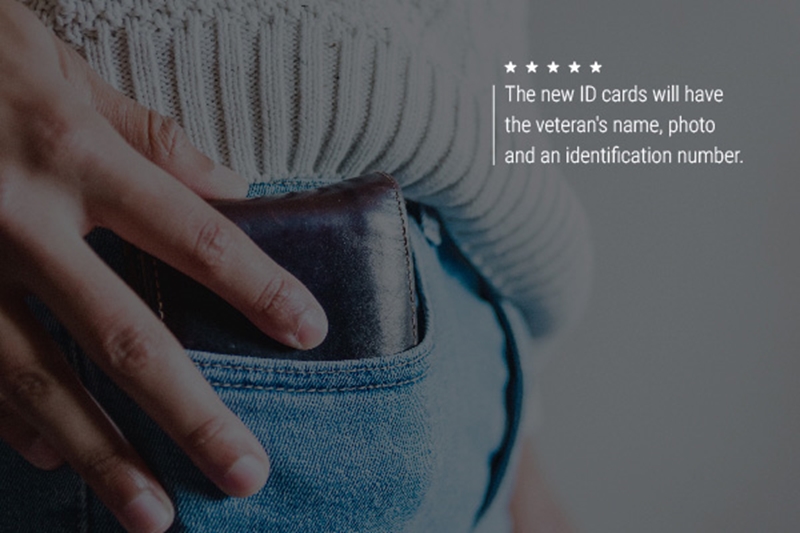Starting this month, discharged veterans will be able to identify themselves a little more easily. Instead of keeping their copy of their discharge papers, which are commonly referred to as DD-214s, they can get a photo ID card from the Department of Veterans Affairs by applying on the VA's website.
This new method results from the Veterans Identification Card Act, a law passed in 2015. Per the legislation, the VA must issue a hard-copy photo ID to any discharged veteran who applies. Representatives stated the VA will provide the cards at no cost, although the law does allow the government body to collect a fee.
The legislation makes it much safer for veterans to carry identification. Before, the only form of ID most vets had was their DD-214, which proved cumbersome for vets to keep on their persons. In addition, DD-214s contain sensitive information like birth dates and Social Security numbers. Carrying these forms around increased the risk of veterans becoming victims of identity theft or fraud.
The new cards, on the other hand, will only have the holder's name, photo and a non-Social Security identification number.
Previously, methods of identifying veterans were inconsistent across the country. Only military retirees receive a retiree card from the Defense Department, and only certain veterans can get a photo ID VA health card. Similarly, many, but not all, states allow veterans to identify themselves on their drivers licenses. This new system provides a more uniform, standardized and secure way for vets to prove their service for non-government reasons – for example, to receive military appreciation discounts from retailers.
However, not everyone is completely satisfied by the new ID option. Many veteran advocates are upset because the new cards aren't available to everyone who served.

Identifying veterans with other-than-honorable discharges
As the Army Times pointed out, the Act states that the VA must provide a new ID to any veteran who requests one and presents a document from their military personnel file or a copy of their DD-214 form. However, VA Press Secretary Curt Cashour recently confirmed that only veterans with "honorable service" will be eligible.
Advocates believe this unfairly punishes veterans suffering from mental health issues. They note that many instances of drug abuse and minor insubordination, which lead to dishonorable discharges, stem from untreated mental health issues. Additionally, as Military.com noted, LGBTQ servicemembers who were publicly outed before the repeal of "Don't ask, don't tell" were also dishonorably discharged.
"I find it incredibly frustrating, and deeply hurtful, that the VA would deny hundreds of thousands of veterans like me our very identity, after all that we know today about the nexus of PTSD and bad paper," said Kris Goldsmith, who received a dishonorable discharge. Goldsmith is the founder of High Ground Veterans Advocacy.
The decision to deny cards to vets with other-than-honorable discharges is surprising given that just this summer, the VA reversed its existing policy on mental health care. Prior to July, only honorably discharged veterans could receive these services. Now, those with so-called bad paper can receive emergency mental health support.
In the eyes of VA Secretary David Shulkin, allowing other-than-honorably discharged veterans to receive emergency room mental health services would help the VA spot untreated mental health issues and, as a result, reduce veteran suicides. Veterans advocates applauded the move, but they see the recent ID card issue as a complete about-face.
Advocates will likely continue fighting for access to the new cards. In the meantime, honorably discharged vets have a more convenient way of identifying themselves.


